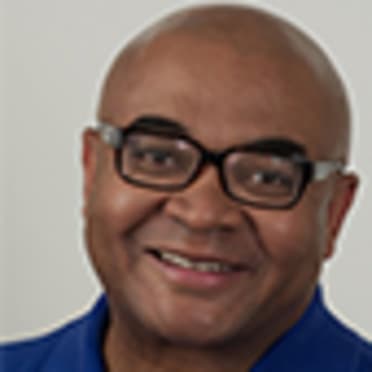Paige dazzled in rare Denver appearances
A version of this story was originally published in April 2020.
DENVER -- One mighty pitcher unlocked pitching success in Denver’s mile-high atmosphere, then threw away the key. That pitcher was Hall of Famer Satchel Paige.
The Major Leagues are celebrating Jackie Robinson Day on Wednesday, the anniversary of Robinson’s debut with the Brooklyn Dodgers to break the color barrier. It is as good a time as any to celebrate the many greats before him who never received the chance.
Thanks to the annual Denver Post tournament, which -- rarely heard of at the time -- was open to black and integrated teams, Paige showed his wares in Denver with undeniable aplomb in 1934, 1936 and 1937.
The Denver Post tourney was promoted as one pitting the best semi-pro and sandlot teams. But Negro Leagues teams and players brought in as ringers elevated the quality of play, especially during the 1930s. To even draw bigger crowds, just-retired Major Leaguers such as Rogers Hornsby suited up.
So skip the “semi-pro” stuff. With the Majors years from expansion and St. Louis the only MLB city west of the Mississippi River, the Denver Post tournament was justifiably known as the “Little World Series of the West.”
In the book “Satchel Paige and Company: Essays on the Kansas City Monarchs, Their Greatest Star and the Negro Leagues,” edited by Leslie A. Heaphy, Terrie Amadot wrote about the significance of such competitions:
“The change of institutions, whether social or sporting ones, is as dependent on incremental, everyday achievements as it is on path breaking, watershed moments. We cannot explain how the eventual integration of Major League Baseball would have been different without the earlier experiences of Paige and others, but it would likely have begun even more slowly and taken longer to accomplish.”
Here is a look at Paige’s performances in Denver:
1934
J.L. Wilkinson, a white man, owned the Negro Leagues’ Kansas City Monarchs and the barnstorming team House of David, which at times brought in Major Leaguers such as Grover Cleveland Alexander and Babe Ruth, who donned fake beards to join players who had worn grown long hair and real beards.
Wilkinson had his eye on the $7,500 first-place prize but also wanted second-place money. So he brought in Paige and his catcher, Bill “Cy” Perkins, from the Negro National League’s Pittsburgh Crawfords to play for House of David. He also added the Monarchs' Sam Bankhead and eventual Hall of Famer Turkey Stearnes. Depending on legend, Paige either grew a scraggly beard or wore a fake one.
Wilkinson also used his sway to arrange the seedings so the teams would meet in the final. Paige outdueled Chet Brewer, 2-1, in the final before 11,121 -- with thousands not being able to get into Merchants Park. Timothy M. Gay, author of “Satch, Dizzy & Rapid Robert: The Wild Saga of Interracial Baseball Before Jackie Robinson,” wrote about the event for the Denver Post on April 1, 2010.
“Paige struck out 44 batters in 28 innings in Denver, wowing the crowd by running up 23 consecutive scoreless frames. In earning ‘Outstanding Pitcher’ Satch was awarded a coffee percolator.
“Turkey Stearnes won a watch as ‘Outstanding Player.’ After Wilkie [Wilkinson] took his cut of the House of David’s wining share, each player got $406, pretty good money in Depression-era America.”
1936
Paige and Brewer were among the Negro Leaguers who pitched for a Bismarck, N.D., semi-pro team that was integrated and won the National Semipro Tournament in Wichita, Kan., in 1935. But in ’36, Paige was representing the Negro Leagues and back in Denver.
The book “Home Run in the Rockies: The History of Baseball in Colorado,” by Irvin Moss and Mark Foster, details the tournament:
“Paige led an all-black team called the Negro National League All-Stars into the tournament in 1936. His teammates included catcher Josh Gibson and center fielder ‘Cool Papa’ Bell. This incomparable team regularly fared well against barnstorming Major League all-star teams, and it swept through The Post tournament undefeated. In the final against the all-white Eason Oilers of Enid, Oklahoma, Paige whiffed 18 terrified batters as his team won, 7-0. The Negro All National League Stars collected a total of $5,096, big money in the Depression."
1937
Another group of stars from the Negro Leagues -- the Trujillo All-Stars, who were bankrolled by Dominican Republic president Rafael Trujillo -- dominated in Denver, winning all but one game. There was a bitter, bat-wielding brawl during a game against the Pampa (Texas) Oilers.
There were Major League ringers, including Alexander with the McVitte-Alexander club of Springfield, Ill., Hornsby with the Denver Bay Refiners.
Actually, Paige’s participation was limited. He was ejected in the brawl and didn’t participate until near the end. In the book edited by Heaphy, Amadot wrote: “Clearly Paige was intending to pitch in the seventh-round championship game on Monday evening, collect the $1,000 share due the winning pitcher, and be on his way again.”
Although Paige struck out 14, he walked three and his fielders made four errors in a loss. But because each team had lost a game, they played again for the title. Leroy Matlock pitched for the Trujillos in the 11-1 win that was called after seven innings. The team took nearly $5,200 for winning, and Matlock got the bonus.
Ten years later, Robinson integrated MLB. But players like Paige dominating tournaments like these showed that there was merit long before opportunity.
“You have to understand -- no matter how much accomplishment these players had playing against each other in black baseball, there was almost this need to validate how good you are playing against people who didn’t look like you,” said Bob Kendrick, president of the National Negro Leagues Baseball Museum in Kansas City. “Those events, like barnstorming games against Major League teams or competing in the Denver Post tournament in many ways helped to validate the talent of these players, in the minds of white baseball fans.”
